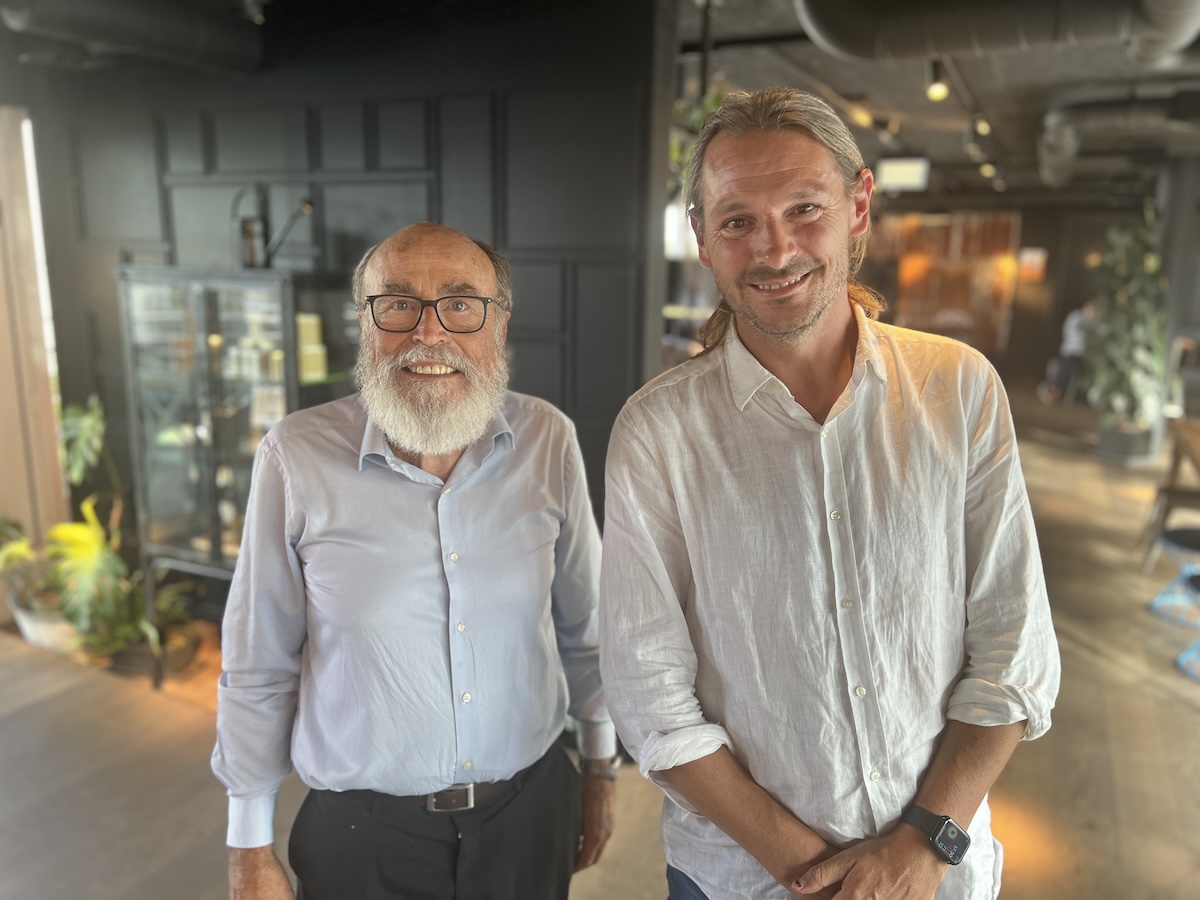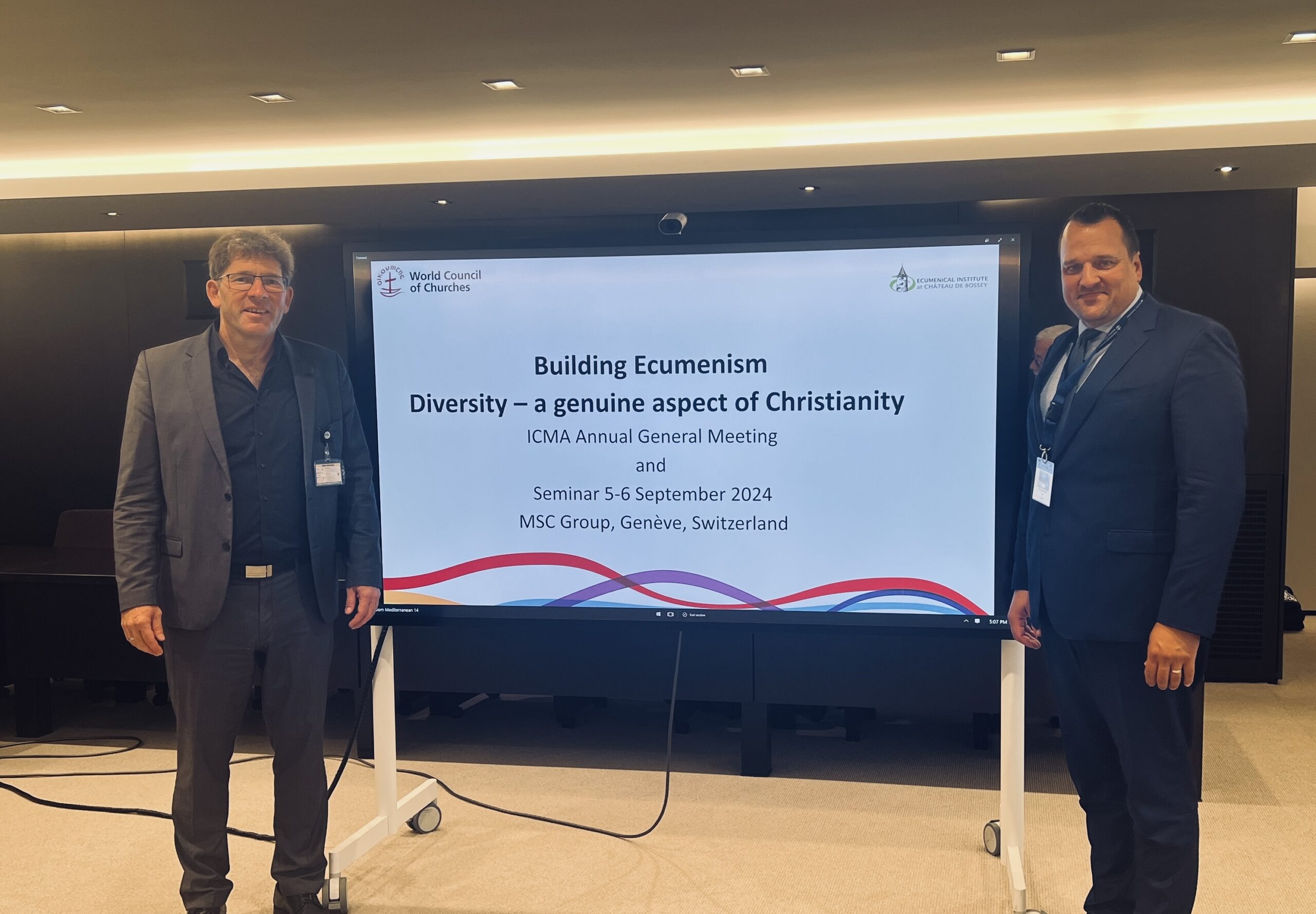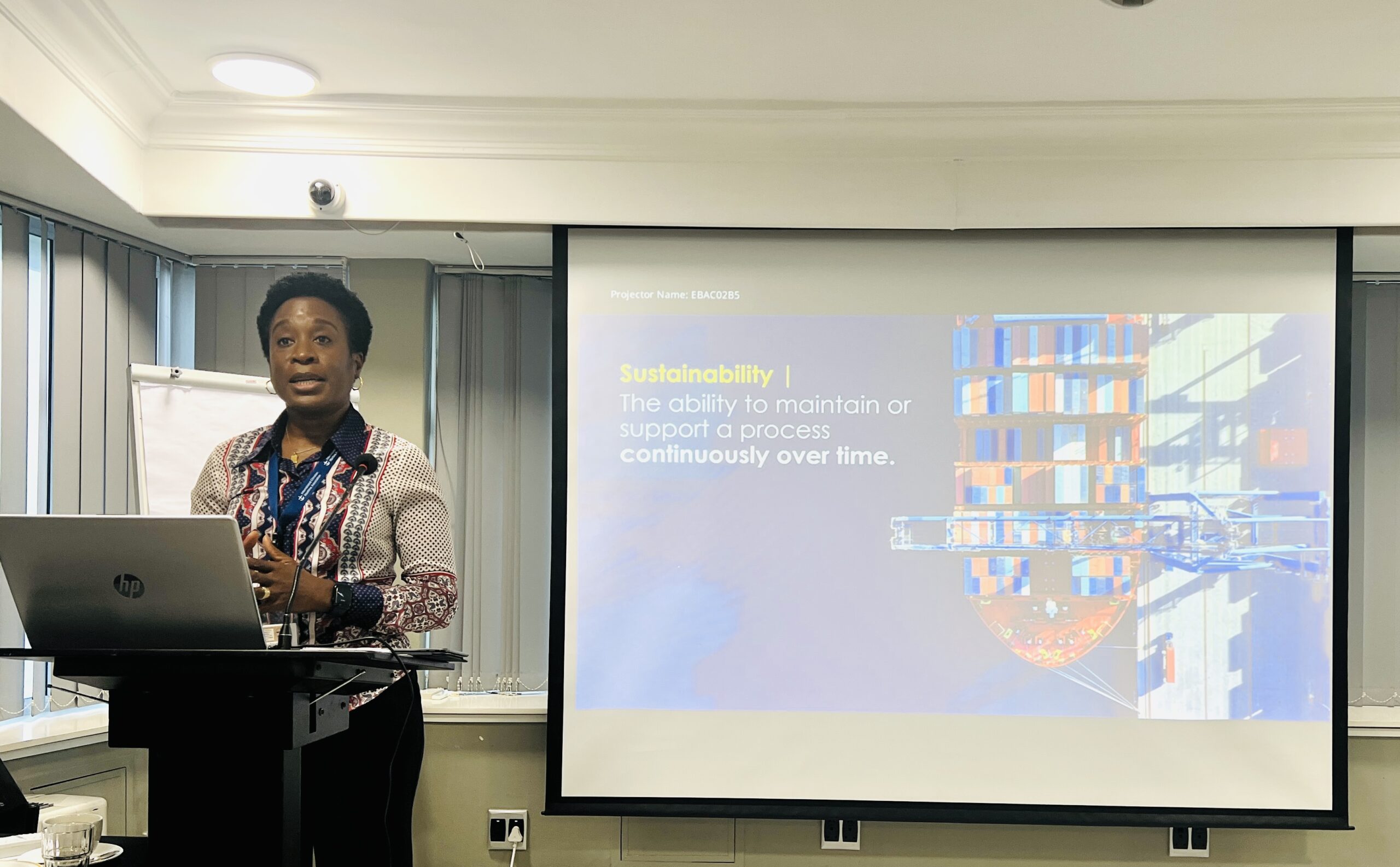By Susan Huppert, NAMMA
Transitions can be a navigational challenge. But for these newly established chaplains finding fulfillment in a new role proves to be profitable.
Three professionals who shifted from their previous positions to the world of serving seafarers discuss how they became chaplains to a collection of transient people on the water. Contrary to the repetitive contact characteristic of pastoring a church on land, serving seafarers involves a mobile population with limited time for addressing personal concerns and spiritual needs. The trio reflects on the similarities and differences.
Rev. Tom Rhoades, former Senior Pastor of a Methodist congregation in rural Arkansas, balanced preaching and most of the ministerial tasks a rural congregation requires. After nearly ten years of organizing, attending meetings and pulpit time, he took a leave of absence.
“I didn’t have much enthusiasm left for ministry,” said Rhoades.
Unclear about continuing as a pastor, Rhoades began to explore other employment options. His search led him to Memphis, Tennessee, where he began to look into the river industry. He was hired with the American Commercial Barge Lines as a deck hand for seven years which led to a positon as a cook on the M/V Cooperative Spirit while in dry dock at Paducah, Tennessee.
During that period, a hard-hat wearing Episcopal Chaplain, Kempton Baldridge, was visiting the boats along the river where Rhoades worked and kept his past profession to himself. A relationship developed with the chaplain. Rhoades let his guard down and the pair soon learned they had much in common regarding pastoral care. The chaplain challenged Rhoades to explore the use of his God-given pastoral gifts.
In 2014, Rhoades began a process that led him to explore what God may have for him. One day, Baldridge challenged Rhoades to consider chaplaincy on the water. He connected Rhoades to the Evangelical Lutheran Church, a denomination open to bi-vocational clergy positions, which welcomed Rhoades as he continued to navigate toward his new ministry as a part-time chaplain. Rhoades sensed a revival of his need to connect with those he served.
Sometimes higher education and ordination can “separate you out and you can lose touch with people,” acknowledges Rhoades. “Being a pastor can isolate you from everyday people.
“This chaplaincy keeps me connected to the pain and suffering of people [who lack a religious network] because they work a rotational shift of 28 days,” said Rhoades.
Ultimately, he joined the Seamen’s Church Institute of New York and New Jersey where a vacant position on the Lower Mississippi River, Gulf and Houston ship channel was available.
Ministry looks different on the river. You may find a person with needs at the top of a gangway or in the mess room. The work is less calculated but as critical. He found similarities between his previous pastoral duties.
“The people have the same basic needs, but they are met in different ways. The reputation of brown water mariners, those who work on the rivers, is different from a community church. There is a sense of gratitude here.”
Rhoades likens his chaplaincy to an itinerate worker who meets the needs of those he comes in contact with because he is going to the people rather than the people coming to him.
“The work of God is more incarnate, establishing common ground with individuals,” said the rookie chaplain. “I am much happier as a river chaplain because it is outward focused. It is easier because people are more interested.”
Beyond meeting the needs of the mariners, he also promotes the SCI among other organization in the maritime transportation industry. He embraces the holistic work he has been appointed to, visiting towing vessels and tugs. Rhoades believes industrial chaplaincy is a new model of what the church can look like. Through trainings and relationships he broadens the understanding of shore-side people regarding the value of the ministry among river workers. His certification in Critical Incident Stress Management enables him to merge his pastoral care with those he now serves.
“I hope the work I do creates a model of building relationships,” said Rhoades.
“The people in the maritime industry inspire me. They are resilient. They are caring. They are committed,” he posted on Facebook.
++++++
If you could experience God’s compassion by listening to a voice, it would be clear when talking with the Reverend Sanford Sears, priest in the Anglican Catholic Church and Port Chaplain at the Seafarers’ House, Port Everglades, Florida.
Sears, a retired Coast Guard Active Duty and Reserve Officer found that maritime careers can partner well with service to seafarers. While in the Coast Guard he served in public affairs, port security, inspections, and small boat stations evaluating needs onboard the ships.
As an inspector, assessing needs and defects on ships was crucial for safety. Although the technical and mechanical aspects are no longer his responsibility, seafarer’s needs are. In his new position as Port Chaplain, Sears states that the welfare of a crew is linked to the functioning of a vessel. How crew members interrelate is crucial.
“Ships used to have social crews who were oriented toward each other,” said Sears. “We are losing that cohesiveness with one another. Ship mates may not be looking out for each other.”
Due to social media access, crew members often go to their rooms in isolation, where previously they would interact and be aware if someone was not doing well.
WI-FI enables crews to interact with family members, see new babies, but also receive sad news more quickly. Many seafarers go to sea to support families and are not free to go home when tragedy strikes. Crews with mixed nationalities of multiple languages and faiths can provide stress, too. The lost comradery is needed for wellbeing. This is why a ship visit matters.
“I was looking for new options for ministry,” said Rev. Sears. “The ministry to seafarers is a ready-made church at the doorstep of the ocean. A welcoming congregation for anyone ready to serve.”
“I don’t see a difference between my parish and the work in the port,” said Sears. “I do anything I would normally do in my church. On a vessel, I visit the cook first. The cook knows about the inter-relationships. The cook represents everything. He is a nurturing person, like a mother or father, explains Sears.
The complimentary work between his parish and his port enhance each other. The Holy Guardian Angels Church in Lantana, Florida, like a ship, is a congregation of mixed nationalities able to offer prayers for seafarers and support to the Seafarer’s House.
Within his scope of responsibility as port chaplain, he oversees the part-time chaplains, the Apostleship of the Sea outreach, five volunteer chaplains and the ship welfare visitors.
His ministries are supported by his University education , St. Vladimir’s Orthodox Seminary, Bangor Theological Seminary, Major Seminary of Barranquilla, Colombia; and St. Stephen’s House Certificate in Orthodox Theology. His education and natural compassion create a pastoral opportunity for land and sea.
Whether pulpit burn-out, former ship experience, or just searching for a place to give back following retirement, port chaplaincy fills a gap society often overlooks.
++++++
The Reverend David Reid is also familiar with the working seafarer. Initially interested in civil engineering, he left a North London technical college to joine the British Merchant Navy in 1968. He served eight years as a Senior Officer/Navigator in the British and Canadian Merchant Navy. At that juncture he determined it was time to make a change.
Reid moved on to a variety of business opportunities over 50 years with a strong emphasis in leadership, innovation and growing new enterprises. He held senior management positions as CEO, president and managing director in the U.S. and the United Kingdom in port industry. Throughout many years of experience as a senior executive, he noticed the work of chaplains and centers that provided care to seafarers.
As Reid began thinking about his retirement years, he decided he wanted to take on a fresh challenge – a way to give back. So he began attending seminary part-time to explore options. This led to work as a hospice volunteer and involvement in the Veteran-to-Veteran program. He explored options of chaplaincy among fire fighters and hospitals.
“I wanted to push myself a little,” he said. “I found hospice very rewarding.”
As part of his consideration he volunteered at the Seamen’s Church Institute, Philadelphia, a natural fit, but completely different from his professional work.
“I understand what it means to be a seafarer. It is a world I am comfortable with” said Reid.
He found that a big part of being a seafarer chaplain is listening.
“It is completely different. It is a ministry of presence to different faiths and no faiths,” said Reid. Historically, the European community supplied the bulk of seafarers. They were the demographic of that time. Today, we have a much broader population of people and faiths on ships.
“As a chaplain, you are not coming as a pastor. You are coming to listen; to be with them. It is a different experience. You are not coming onboard as a salesman or to proselytize. I am there for them as people. We are all people,” said Reid.
Seafarers must be incredibly adaptable to deal with the management of change in a positive way. According to Reid, seafarers need to exercise transformational leadership.
“This is a special connection that enables seafarers to think together and to function in a unified manner, even though on paper they may appear to be very diverse,” said Reid.
While working toward his master’s degree online, he began volunteering as a ship visitor with the SCI. He took the opportunity to do his thesis on helping the board restructure their work in a busy port that needed many ship visitors who were committed to longevity. The goal was to develop a team of workers to sustain the work. Reid developed the Active Ship Visitor Program, a training the SCI implemented in Philadelphia.
Reid believes that centers and chaplains can create an open door for greater partnership with the local church by creating an awareness of the shipping industry as the invisible industry it is, and by teaching congregations about who the people are that make the industry work; what seafarers do and the challenges they face on our behalf. When people learn this their response to support those who work at sea should be clear.
Navigating new challenges is a way of life for those who live and work on rivers and seas. Likewise for those who serve them. There is always a new person, a new situation, and a new story for those who choose chaplaincy as a way to give back.





